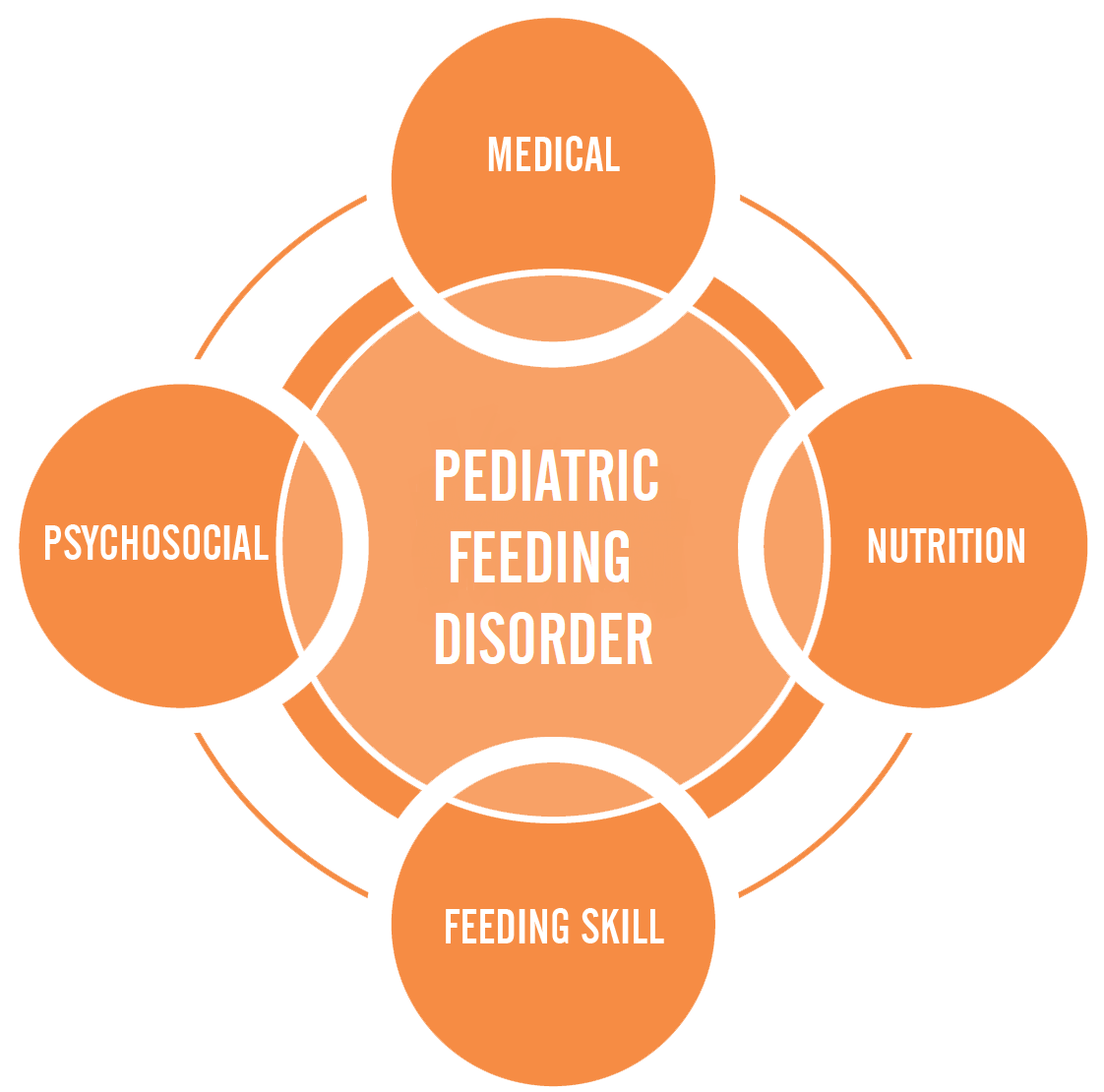
PEDIATRIC FEEDING DISORDER: AN OVERVIEW
Feeding is an intricate combination and coordination of skills. It is the single most complex and physically demanding task an infant will complete for the first few weeks, and even months, of life. A single swallow requires the use of 26 muscles and 6 cranial nerves1 working in perfect harmony to move food and liquid through the body. When one or more pieces of the feeding puzzle are missing, out of order, or unclear, infants and children can have difficulty eating and drinking.
Pediatric feeding disorder (PFD) is impaired oral intake that is not age-appropriate and is associated with medical, nutritional, feeding skill, and/or psychosocial dysfunction2 . Conservative evaluations estimate that PFD affects more than 1 in 37 children under the age of 5 in the United States3 each year. For these infants and children, every bite of food can be painful, scary, or impossible, potentially impeding nutrition, development, growth, and overall well-being.

Coordinated Care Model
Feeding Matters’ Coordinated Care Model examines the complexities of pediatric feeding disorder (PFD), focusing on the four key domains that significantly impact a child’s lifelong well-being: medical, nutrition, feeding skill, and psychosocial.
When correctly diagnosed, PFD is manageable. The true concern lies with early identification and intervention. If you are worried about a child’s eating habits, Feeding Matters’ online tool, the Infant and Child Feeding Questionnaire, is a great place to start. This free tool will help you better understand your child’s feeding habits and identify any areas of concern. A printable summary is available after completing the full-length questionnaire, which you can then use to help discuss any red flags with your child’s healthcare provider.
Through collaborative care and the proper support system, PFD can be well regulated and treated.
1. Bass, N.H. and Morrell, R.M. The neurology of swallowing. In: M.E. Groher (Ed.), Dysphagia, Diagnosis and Management. Butterworth–Heinemann, Boston, MA, 1992, pp. 1–29.
2. Goday PS, Huh SY, Silverman A, Lukens CT, Dodrill P, Cohen SS, Delaney AL, Feuling MB, Noel RJ, Gisel E, Kenzer A, Kessler DB, de Camargo OK, Browne J, Phalen JA. Pediatric feeding disorder: consensus definition and conceptual framework. JPGN 2019;68(1):124-129.
3. Kovacic K, Rein L, Kommareddy S, Szabo A Bhagavatula P, Goday PS. Pediatric feeding disorders: A nationwide prevalence study. J Peds. DOI: https://doi.org/10.1016/j.jpeds.2020.07.047